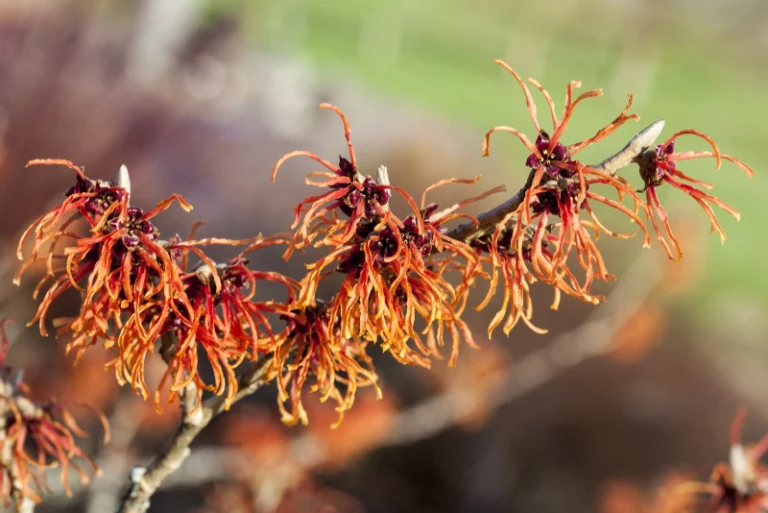Most people suffer from acne, eczema, psoriasis, rosacea, and other skin conditions.
There are many natural remedies for healthy skin, including astringent herbs. These herbs help cleanse your body and remove toxins, leaving your skin feeling fresh and rejuvenated. In this article, we share with you the top 13 astringent herbs for healthy skin.
Astringents are herbs that are used to treat skin conditions such as acne and eczema. They contain ingredients that dry out the skin, which helps to reduce inflammation.
Uva Ursi
Uva Ursi is a powerful astringent herb used to treat skin conditions such as acne, eczema, psoriasis, and rosacea. Uva Ursi contains a compound called ursolic acid, which helps reduce inflammation and redness.
Ursolic acid is found in many plants, including bearberry, eucalyptus, horsetail, mullein, rosemary, sage, St. John’s wort, and uva ursi. This plant is native to Europe and Asia, where it grows wild in forests and along roadsides.
St. Johns Wort
St. John’s wort (Hypericum perforatum) is a flowering plant native to Europe and Asia. St. John’s wort contains powerful antioxidants called hypericins, which help support healthy skin.
Raspberry
Raspberries are known for their antioxidant properties, making them great for healthy skin. They’re loaded with vitamin C, flavonoids, and anthocyanins, which help protect against free radical damage and reduce inflammation. Plus, raspberries contain ellagic acid, which helps fight off bacteria and viruses.
Barberry
Bearberry is a powerful astringent herb used for centuries to treat skin conditions. It contains astringents, anti-inflammatory properties, and antioxidants. Bearberry is often combined with other herbs to create a synergistic blend that treats a variety of skin problems.
Bearberry is a great herb for treating acne, eczema, psoriasis, and dry skin. It’s especially effective when paired with other astringent herbs, such as rosemary, sage, and eucalyptus.
Slippery Elm
Slippery elm bark contains tannins, saponins, and flavonoids that help prevent inflammation and reduce swelling. Slippery elm is used to treat diarrhea, constipation, hemorrhoids, and ulcers. It’s also helpful for treating skin conditions such as eczema, psoriasis, and dermatitis.
Shepherd’s Purse
Shepherds purse is a traditional herbal remedy used to treat skin conditions such as eczema, psoriasis, and acne. The herb contains anti-inflammatory properties that help reduce redness and swelling.
Horse Chestnut
Horse chestnut (or Aesculus hippocastanum) is a tree native to Europe and Asia. The fruit of this tree contains tannins, saponins, and flavonoids that help fight inflammation and improve blood flow. Horse chestnuts are used to treat conditions including gout, rheumatoid arthritis, and varicose veins.
Horse chestnuts are also known to be effective against psoriasis, eczema, acne, and dermatitis. They’re also helpful for treating dry skin, wrinkles, and premature aging.
Witch Hazel
Witch hazel is a natural astringent herb used to treat minor skin irritations, including sunburns, bug bites, and cuts. Witch hazel is also known for its ability to reduce swelling and inflammation.
Elecampane
Elecampane (also known as Inula helenium) is a perennial herb native to Europe and Asia. It’s used in traditional medicine to treat skin conditions including acne, eczema, psoriasis, and rosacea. Elecampane contains elemicin, a compound that helps reduce inflammation and stimulate cell growth.
Oak Bark
Oak bark is used as a natural remedy for skin conditions ranging from acne to eczema. It contains salicylic acid, which helps reduce inflammation and redness.
Agrimony
Agrimony is a perennial herb native to Europe and Asia. It’s used in traditional medicine to treat skin conditions including eczema, psoriasis, and dermatitis.
Agrimony contains salicylic acid, which helps reduce inflammation and dryness. It’s also rich in flavonoids, which help prevent cell damage and slow down the aging process.
Calendula
Calendula has long been used as a natural remedy for skin conditions. It’s especially useful for healing wounds and burns, and it can even be applied topically to treat acne. Calendula is also effective against fungal infections and can be used internally to relieve stomach aches and other digestive issues.
Chamomile
Chamomile has long been used as a natural remedy for many skin conditions, including eczema, psoriasis, and acne. It contains anti-inflammatory properties that can help alleviate symptoms associated with these conditions. Chamomile tea is also beneficial for soothing sunburns and rashes, and can be applied topically to treat minor burns and cuts.
Tea Tree
Tea tree oil has become very popular over the last few years due to its many benefits. It’s used topically to treat acne, eczema, psoriasis, and other skin conditions. Tea tree oil is also commonly used internally to support healthy digestion and boost energy levels.
In conclusion, astringents are herbs that help to tighten pores and reduce inflammation. They’re used to treat acne and various types of dermatitis, including eczema and psoriasis.
The most common astringent herb is witch hazel, which contains salicylic acid. Other commonly known astringents include calendula, chamomile, aloe vera, and tea tree oil. While these herbs are often considered safe for use around the home, it’s important to note that they can cause irritation if applied topically. So keep that in mind when using them.
While astringents aren’t necessarily the best option for everyone, they’re certainly worth considering if you want to improve your complexion without resorting to harsh chemicals.

